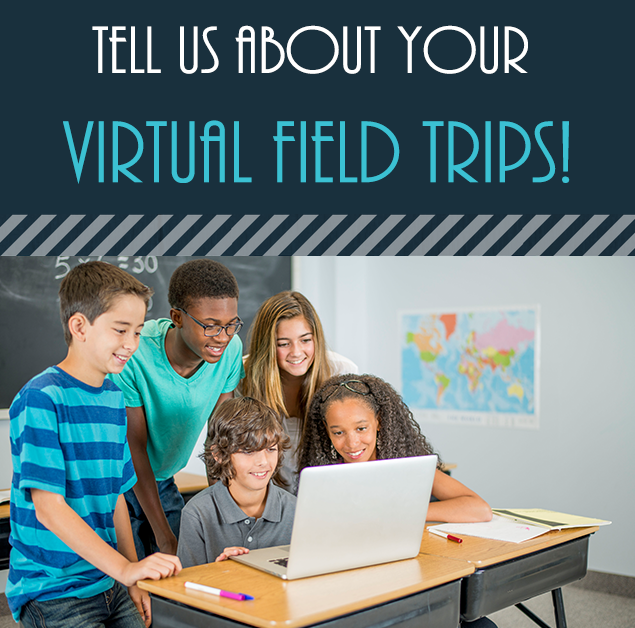Follow-up Activities for Virtual Field Trips
Posted by Network Support · Leave a Comment
Utilize follow-up activities after Virtual Field Trips to ensure a deeper level of learning.
Catching the attention of a diverse group of students, sustaining their interest in the subject, going beyond basic book knowledge, presenting experiences that will be etched in their memory and help them make real-life connections – these are some of the goals that a teacher committed to holistic education strives to achieve. In this context, Virtual Field Trips are emerging as a useful tool that furthers education.
Using technology – a medium that 21st century-students are most comfortable with – Virtual Field Trips allow teachers to be creative. They grab students’ attentions, provide hands-on experiences and move beyond what the book says. Available at the click of the finger, a Virtual Field Trip overcomes common constraints of time, money and student-abilities, making it a more inclusive tool.
Virtual Field Trip Follow-up
The time immediately after the Virtual Field Trip is an important period, as the experience is still fresh in the minds of the students. They are often excited about their adventure and eager to share their perspectives and new knowledge with friends and family. This is a good time to engage students in class discussions. Without a follow-up activity the Virtual Field Trip can lose its effectiveness. Here’s a look at a few follow-up activities that can be used to increase long lasting effects:
1. Draw Connections
Virtual Field Trips are not an end in themselves. Therefore, it is important that students are able to make logical connections between what they have experienced and what they learn in class, things that are happening around the world or about life itself.Drawing connections means allowing students to process the information that they have received. They should think about and create platforms where they can share thoughts and build new thoughts. Some of the ways in which this can be achieved are through social media discussions and by presenting real world implications.
2. Social Media Discussions
Social media has taken center stage in many ways as an effective medium for voicing opinions and widening knowledge or awareness. It is also a medium that students are very comfortable with. Teachers can encourage students to use Facebook and Twitter to connect with friends across the world, share their experiences and hear from their friends. This sharing of knowledge and experience will help them get new perspectives on a specific topic.You can host pages where all the students can present their views while hearing from others across the globe.
3. Real World Implications
A teacher’s commitment is not only to widen the student’s knowledge base. Their efforts are focused towards equipping them for life. Therefore, an important aspect of follow-up of a Virtual Field Trip is to help students connect what they have experienced or seen with real world issues, problems or challenges around them.For instance, a Virtual Field Trip of underwater life can challenge students to research further on disappearing corals and changes in the environment.
This process of connecting the dots may be done as part of a discussion initiated in the classroom or the teacher can encourage students to reflect on certain topics and write about them in their journals. Experts could be invited to talk further about the particular issues highlighted or for further clarity and understanding.
4. Reporting on the Virtual Field Trip
Encouraging students to report on the Virtual Field Trip is a great type of follow-up activity that ensures that they process information thoroughly. Teachers can ask their students to either do a general write up or make it more interesting by assigning them the perspective through which they have to report. For example, write about the trip to the museum of natural history from the perspective of one of the archeologists. The report needs not be restricted to a written paper, but can be presented in creative ways, such as skits or charts and visuals, presentations, etc. depending on the subject. Parents, friends, other teachers and even some local experts on the subject can also be invited for the presentations.
Tell us about your virtual field trips.
Like this article for teachers?
Browse the Professional Learning Board COURSE CATALOG to find related online courses for teachers in your state. Professional Learning Board is a leading provider of online professional development classes that teachers use to renew a teaching license or renew a teaching certificate.





